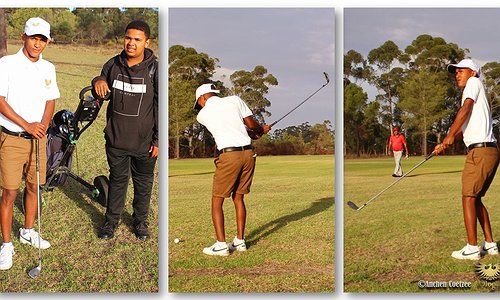Quiet no more: A town's demand to be heard
"Sir, we extend an invitation to you to peruse the following article and offer viable solutions. This journalist believes that the people of Riviersonderend are willing to meet you, as the Municipal Manager of Theewaterskloof Municipality, more than halfway if transparency is provided. It is worth noting that we understand that part of an MM’s duties entails to serve those responsible for maintaining a full treasury.
We thank you in advance for the time we believe you will undoubtedly, as an allegedly visionary and innovative leader, dedicate to addressing these concerns as well as for your prompt response."
- Editor

The following quote is from an old Dutch proverb that goes: “Hoe dieper als ik poog te delven, hoe meer dat ik bederf ontmoet.” In essence, it suggests that the more you delve into or investigate something, the more challenges, or complications you may come across.
What initially began as a news story seeking answers from Theewaterskloof Municipality about service delivery problems in Riviersonderend, has now evolved into a broader inquiry, extending beyond the initial focus on electricity and water issues.
The scope of the challenges has proven so extensive that Rivier Rekord finds it necessary to categorize (and address) most of it after further examination and at a later stage.
Riviersonderend is one of the six towns falling within the jurisdiction of Theewaterskloof. The other towns consist of Botrivier, Grabouw, Villiersdorp, Caledon, and Greyton. According to its residents, Riviersonderend has undergone a slow but dramatic transformation over the years, which only seemed to snowball in recent years.
This journalist has engaged in conversations with some of these locals, as this matter is fundamentally in the interest of the town's people and a significant concern for the well-being of future generations.
Issue 1: Challenges impacting Riviersonderend's environment and tourism
While the below concerns may appear as minor issues on their own, the environmental impact and subsequent influence on tourism, which in turn generates income, are substantial.
However, there is clearly vandalism and apparent questionable municipal management that detract from the town's charm.
Du Preez shared that pathways leading to the river, Kleinbergie, and the golf course suffer from neglect, resulting in litter and debris strewn about. He emphasised the absence of a municipal vision to maintain cleanliness along the main routes, even on a monthly basis.
“Daar is 'n pragtige sirkelstaproete op die Kleinbergie – alles munisipale grond - dit kan net weer opgegradeer word. Ongelukkig wei boerbokke onwettig in die fynbos, en daar is geen munisipale beheer daaroor nie. Indringerplante neem toe op meentgrond en Kleinbergie en daar is geen plan vanaf munisipale owerhede om dit te bestry nie,”
Du Preez proposed a solution to address the littering issue “Sou 'n morsjors gevang word wat vullis strooi, moet hy/sy verplig word om 'n gedeelte op te ruim,”
He suggested that the municipality should perform a comprehensive cleaning of the main routes at least once a month, emphasising that the initial cleanup should be substantial and subsequent maintenance should be relatively straightforward. He also recommended organising competitions with prizes to incentivize the ongoing cleanliness of these routes. “Die hoofroetes behels die hoofpad, paaie na die rivier, Kleinbergie, die gholfbaan en Poortjie,”
“Finansies kan bewillig word om die Kleinberg staproete op te gradeer; om indringerplante op Kleinbergie te bestry, asook om die rivieroewer in 'n beter toestand te kry.”
Du Preez informed us that the brass plate on Kleinbergie's cannon has also been stolen, nameplates are frequently vandalised, and the benches near the cannon are defaced with graffiti. Lastly, Du Preez proposed providing assistance to sports clubs to enhance their facilities.
Rivier Rekord Suggestions
While budget constraints may exist, allocating funds strategically to these initiatives can have a significant impact on community empowerment and vandalism prevention without overburdening municipal finances. The goal is to engage the community actively in preserving public spaces while fostering a sense of shared responsibility.
• Community Watch Programmes: Establish and support community watch programmes with minimal budget allocation. Encourage residents to volunteer for patrols and provide them with basic training and communication tools to report vandalism.
• Youth Engagement Activities: Organise cost-effective youth engagement activities like sports events, art projects, or cultural programmes that keep young people occupied with positive alternatives to vandalism.
• Community Education: Invest in community education programmes that raise awareness about the consequences of vandalism and the importance of preserving public spaces. Host workshops, seminars, and awareness campaigns in local schools and community centres.
• Public Art and Beautification: Dedicate a portion of the budget to public art projects and beautification efforts. Involve the community in these projects to instill a sense of pride and ownership in public spaces, reducing the likelihood of vandalism.
Issue 2: Electricity and water
Based on the information we've gathered; it does appear that the electricity issue in Riviersonderend is linked to Eskom.
When it comes to water, or rather the scarcity of it, the residents of Riviersonderend often find themselves in a situation that starkly contradicts the town's name. Frequent water shortages have become a common occurrence for the residents of Riviersonderend. These disruptions can last for hours and have even extended to a distressing 24-hour period in recent times. We firmly believe that the residents of Riviersonderend are reasonable adults who can comprehend occasional breakages or manageable challenges. However, the persistent issue of water scarcity is unacceptable, not only due to its fundamental nature as a basic human need, recognised as a right rather than a privilege, but also because it results in various other disruptions and safety hazards, such as the inability to combat fires in town when there is no available water.
During our inquiries into the persistent issue of water shortages, we have determined that these problems stem from ageing and outdated systems that are 38 years old. Rivier Rekord acknowledges that the present municipality has inherited numerous issues from the previous administration and its predecessors. It appears that the previous administrations should have initiated this process years ago but neglected to do so. We therefore recognise the challenges faced by the current municipal leaders, who are now grappling with this predicament. However, hindsight is 20/20, and if we aspire to witness change, current leaders must ensure that the buck stops here.
The allocation of funds is a critical starting point for addressing this problem. Transparency in this regard is of utmost importance. Highlighting the importance of sharing information on the utilisation of funds after budget approval, including a comprehensive cost analysis, cannot be overstated. Ratepayers should have access to a transparent account for every Rand spent.
While Riviersonderend may be just one of six towns falling under Theewaterskloof's jurisdiction, the concern is: what happens if this deterioration continues to escalate? Does the current administration comprehend that a time may come when outsiders will hesitate to invest in this town, tourists will bypass its businesses, and little will remain for future generations?
Rivier Rekord Suggestions
A practical solution that this journalist recommends for addressing the persistent water shortage in Theewaterskloof Municipality is to support low-income households in acquiring municipal backup JoJo tanks. These systems comprise a tank connected to the main water supply line, automatically refilling when municipal water is available. This stored water can be tapped into during water interruptions, ensuring uninterrupted, pressurised water supply for households and meeting safety and sanitation standards for everyday use and drinking.
Entry-level stationary water storage tanks start at a 260-litre capacity and are priced at approximately R1,000, aligning closely with the average daily water consumption of a South African household.
This practical solution can significantly alleviate the challenges caused by the ongoing water shortage, particularly benefiting low-income households in the region. Additionally, adopting this solution would eliminate the need for water from the water trucks. Some locals have noted that this water has a terrible smell, and even their animals won't drink it. It would also reduce the risk of water-related diseases.
• Infrastructure Revamp: Invest in the modernization and regular upkeep of crucial infrastructure like water systems. This proactive approach prevents frequent disruptions and minimises safety hazards, ensuring a more reliable service for residents.
• Transparent Financial Management: Prioritise budget transparency by providing residents with comprehensive information about fund allocation, including a thorough analysis of event costs. This transparency promotes trust, allowing residents to see where their money is being spent and encourages responsible budgeting that prioritises essential services.
• Community Engagement: Actively engage the local community by establishing platforms for input and collaboration with municipal leaders. Residents can voice their concerns, provide suggestions, and participate in initiatives such as clean-up campaigns. This involvement fosters a sense of shared responsibility and pride in the town, making it a more attractive place for residents and potential investors alike.
It appears that the residents of Riviersonderend have not had their voices heard, and there has been a lack of open communication between them and Theewaterskloof Municipality. This should not be the standard practice.
It is essential to value the input of those who keep the proverbial bread on the table of Theewaterskloof Municipality. There should be no fear of speaking up or hesitancy to address concerns, ever.
How long will it be until practical solutions are implemented? Or will discussions simply fade away once the participants leave the boardroom table?
The people of Riviersonderend do not seek excuses; they seek solutions. Even if progress is made one step at a time, it must come with a clear timeline and a steadfast focus on the ultimate goal.
Our next article will delve into two more pressing issues. Rivier Rekord aims to be thorough in its coverage without getting bogged down in trivial details.
Shortly after publishing this article, this journalist shared the article link and requested a meeting with the MM. We are committed to keeping the community informed of any updates on this issue.
Editor: Anchen Coetzee
Subeditor: Neretha Els



